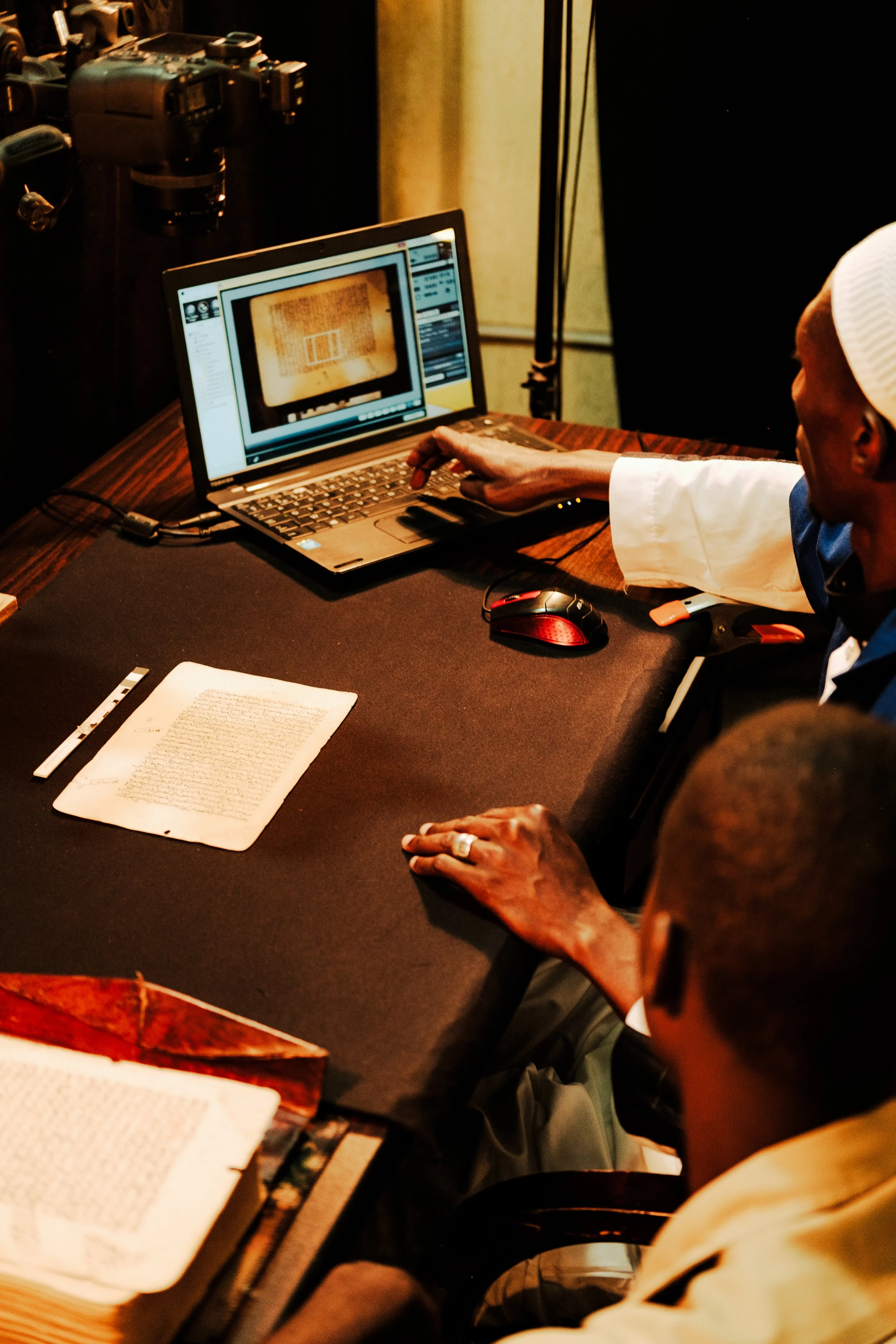Manuscripts of Timbuktu
The Timbuktu Manuscripts Rescue Project is a remarkable initiative focused on safeguarding the intellectual heritage of Timbuktu, Mali. These manuscripts, which span centuries and cover a wide range of subjects—such as astronomy, medicine, philosophy, and law—serve as a testament to the city’s historical significance as a centre of learning and trade in the Islamic world. Written in Arabic and African languages, the manuscripts reflect the profound scholarly traditions of West Africa.
In 2012, when militant groups occupied northern Mali and threatened to destroy these invaluable documents, a concerted effort was launched to save them. Led by local custodians, scholars, and volunteers, over 350,000 manuscripts were secretly evacuated from Timbuktu to the capital, Bamako.
Once safely transported, the project's next phase focused on preserving, digitizing, and analysing the manuscripts.
Given the fragility of the ancient texts, many of which were already damaged by the desert climate and poor storage conditions, immediate action was required. Restoration experts carefully cleaned and repaired the manuscripts, while digital archiving became a priority to preserve them for future generations.
Scanning the manuscripts has been an intensive process involving specialized equipment to capture high-resolution images without further damaging the fragile documents. Through collaboration with international institutions, the manuscripts are being systematically cataloged and studied, revealing valuable insights into the history of Africa and the world.
The Timbuktu Manuscripts Rescue Project is more than just an effort to save ancient books—it is a global commitment to preserving the legacy of African scholarship and ensuring its accessibility for generations to come.





